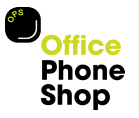 Every year there are new scams run by unscrupulous people that devise ways to make money from their victims.
Every year there are new scams run by unscrupulous people that devise ways to make money from their victims.
Scams are not a new thing, but the advent of the digital age has made it all the easier. Now you can be contacted by email, text and over the internet as well as by a phone call. Not only can victims of a scam lose money, sometimes life savings, but they can be left with stress, trauma and distrust.
Scams by their very nature are often disguised even to the most vigilant among us. But in many cases there are telltale signs to spark your suspicions. So always stay alert and consider the following advice.
When receiving a phone call, letter, message or email, is it:
- from an unknown party or phone number you do not recognise?
- offering you a financial reward, free or easy way to make money?
- offering you a life changing experience?
- asking you to send money before you get a prize or offer?
- requesting you to call a number to confirm your interest?
- asking for your bank details or other personal information?
- using a mobile or PO box only for its contact address?
We have been alerted to a recent spate of fraudulent cases involving 070 numbers. However, this is nothing new. 070 numbers serve a legitimate service but are targeted by fraudsters as they appear to be calls from a mobile number. These numbers are known as ‘personal numbers‘. They are virtual numbers used to forward incoming calls to one of a list of fixed or VoIP telephone numbers pre-selected by the client.
Ofcom state: 070 numbers are legitimate numbers and are often used as a ‘follow me’ service where calls are diverted from one number to another, so that the person being called can keep their own number private, and remain contactable wherever they go. Small businesses and sole traders use them to make it easy to manage calls.
However, as these numbers are sold on an individual basis, it leaves them open for misuse. Ofcom recognise the problem and are continuing to monitor complaints of fraud involving 070 and 076 numbers.
Common types of scam using these numbers is receiving a missed a call. Once you have called the number, you may be put on hold or asked to wait to talk to another advisor; all the time you will be paying between 30p and £1.50 per minute for this premium rate service.
If you believe you have been a victim of a scam or receive a missed call from a number beginning 070 or 076 that you do not recognise, please do not call the number. Instead, make a note of the number and contact Phonepay Plus (0300 30 300 20), who with Ofcom’s approval regulate UK premium rate services.
Remember, if an offer is too good to be true, it probably is!
Advice and help is also available from Action Fraud – the UK’s national fraud and internet crime reporting centre, providing a central contact point for information about fraud and financially motivated internet crime.
For 15 years MF Communications have worked closely with their clients in offering advice, guidance and support in providing and maintaining business telecommunications services .

